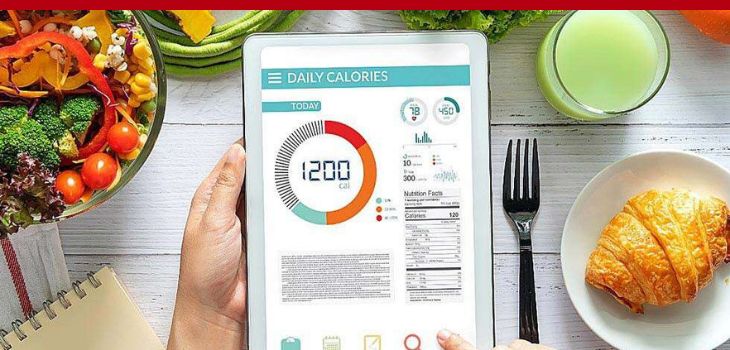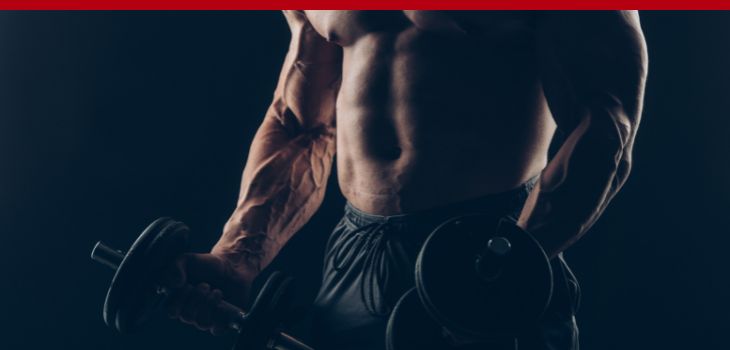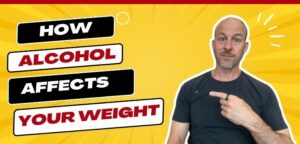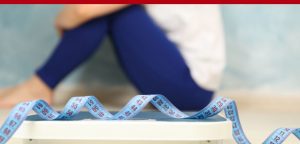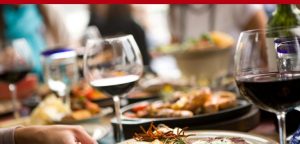Many people make nothing but healthy choices and still can’t lose a single pound of fat. They never get ultra-processed food, they don’t drink alcohol, and they stay away from sweets. Still, every time they face a mirror or step on a scale, the result is the same: they are still overweight.
They are missing the crucial element in fat loss.
It doesn’t matter where calories come from; if you exceed your calorie budget by eating ice cream or cashews, the result is the same: you still get fat.
However, calorie tracking is not a one size fits all solution; there are certain elements to consider before starting to count calories.
So, in today’s Ask Ted episode, Ted answers the question: Should you track your calories?
He shares the story of how he got into tracking calories and the results he got from years of doing it. He also talks about who calorie tracking is not for and the five requirements you must have in place before you start tracking your calorie intake. Listen now!
You’ll learn:
- Why Ted didn’t believe in calorie tracking
- About how Ted realized the carbohydrate-insulin model of obesity didn’t work
- How to discover if you are not a good fit for calorie tracking
- What is the link between calorie tracking and stress management
- What are the advantages of calorie tracking
- The mental gymnastics required to embark in calorie tracking
- What should you do every time you stop tracking your calories
- And much more…
Related Episodes:
Ask Ted 61: Do Calories Really Matter For Weight Loss
445: The Most Effective Diet For Weight Loss with Ted Ryce
474: 7 Fat Loss Lies You Need To Stop Believing with Ted Ryce
Links Mentioned
Want To Lose Fat, Transform Your Body & Live Your Best Life In 2023?
I’m offering this blueprint that will lead you to a fail-proof long-lasting result with your body, with your health that will help you reach that potential that you have inside and become your own super self.
If you’re interested in working with me, you can reach out to my chat team and tell them a little bit about your situation and see if working with me would be a good fit for you.
>>Click Here To Schedule A Call With Me Now!
Podcast Transcription: Should You Track Your Calories? - Ask Ted
Ted Ryce: On today's Ask Ted episode, we're going to answer the question, “should you track your calories?” If you're a regular listener to this show, you've probably heard me mention several times that not only do I promote that you should try tracking your calories, but I use it personally, and I have my clients do it.
But I want to tell you this: For most of my 23 years in the health and fitness industry didn't track calories. I didn't even believe in calories as the main mechanism that determines whether you lose weight or gain weight or fat, however you want to think about it.
And today, I want to talk to you about why I transitioned to tracking calories and what I think the pros are of doing it, as well as what I think the cons are, because I don't believe that everybody should track their calories.
I believe that everybody can benefit from tracking their calories. But today, we're going to dive into the nuances here. So, if you're interested in this incredibly powerful strategy of tracking calories but you're not sure if it's right for you or potentially even how to do it properly, this is the right episode to listen to.
What is up? And welcome to the Legendary Life podcast. I'm your host, Ted Ryce, and as I said, I've been in this industry for 23 years. And the point of this podcast, my very transparent reason for having this show, is to help you get into the best shape of your life.
Because while I mentioned 23 years, and I'm proud of that number, most of the years I spent in the industry, I spent with a lot of trial and error. I went down a lot of rabbit holes that didn't yield results for me and sometimes even hurt my health. And I want to save you that trouble.
And I want you to get what I feel is the best health and fitness information on the Internet. And the second transparent reason for this show is if you are an entrepreneur, founder or busy professional, and you want to get results fast and effective and you want the best coach on the planet—well, at least a world-class coach.
I don't know all the coaches on the planet, but a world-class coach, I want you to think of me when it comes to your health. So, let's dive into this topic today, this question today, because people do ask me and even argue with me about calories and tracking calories.
I want to first tell you that when I got started over two decades ago, I didn't believe in calories. I believed in what's called the carbohydrate insulin model of obesity. What does that mean? Carbs raise your blood sugar. Insulin gets released by your body to lower that blood sugar. And where insulin puts that blood sugar is in your fat. It stores the carbs as fat. So therefore, carbs make you fat.
If that was the case, then there's no point in tracking calories because what you really need to do is just eat as few carbohydrates as possible. And that's what I did for the majority of my career. And when I was in my 20s, because I got started when I was about 22, it really worked for me. I was ripped.
Or it sort of worked for me because not only was I ripped, but I was also tired. I had a low sex drive, even though I was in my late 20s when this started happening, early 30s, too. And I wasn't performing well in Brazilian jiu-jitsu, which was what I was very passionate about at the time.
I ended up getting my brown belt, competed, won a bunch of tournaments, and then I hit a wall and felt like, man, I felt so old. And what I ended up learning after quitting Brazilian jiu-jitsu and then getting a bit chubby—24% body fat, to be specific, which is 1% away from being obese—is something was wrong, and I didn't know what it was because I was knowledgeable.
At that time, I had spent tens of thousands of dollars traveling around to seminars and learning from the best in the industry, working one- on-one with some of the people who at the time were regarded the best in the industry.
Ian—world class coach with many Olympic athletes under his tutelage, Ian king. Charles Polyquin. Who else? Charles Staley, who's been on the show a couple of times. The late Charles Poliquin, and Paul Chek.
I learned from all these people, and so I felt like I was in a great position to determine whether I was doing the right things or not. But I was fat. And not only was I fat, I had high blood sugar, I had a high hemoglobin A1C, which is a long-term biomarker of blood sugar levels. So, I was prediabetic, and I had cholesterol issues.
I was a mess. I felt terrible, too. That was the worst part. And what I ended up learning was that the carbohydrate insulin model was wrong. If you eat too many calories from fat, even if you keep your carbohydrates low, you can still develop diabetes because diabetes isn't caused by carbs. It's caused by body fat and also a genetic predisposition, which some of us have, like me.
And so you can get fat by eating too much fat, by eating too many calories, specifically, this isn't about carbs, fat or even protein. It's about: if you overeat calories, you put on fat. And that was a big game changer for me.
It was extremely hard to make that shift because I had to admit to myself that I was wrong, admit to myself that the people that I was learning from who were very charismatic, very persuasive, they were also wrong.
But the results spoke for themselves. And not only that, all the research says that calories matter, that calories are the number one determinant. Now, I want to just be clear here for a second. Fat loss is complicated because there are genes involved. You may have heard of polygenic obesity.
But most of those genes are found in the brain. They have to do with your reward centers, your stress centers, how susceptible you are to addiction, all these things. So, obesity is complicated, but the mechanism is simple. You can't get fat unless you have the calories to get fat.
It's kind of like you can't build a building without the raw materials. Fat costs energy to keep on your body. And these were the big shifts for me. It was like I was in a whole new world. And what this meant was that—it meant a couple of things.
Number one, I couldn't put butter in my coffee like I used to do when Dave Asprey was really popular back in the day. I know he's still popular, but when he hit the scene, I think everybody was feeling this guy was onto something interesting, and he was, just so most of it was BS.
But anyway, you can't put butter in your coffee because those 400 calories of butter still matter or the coconut oil. So, it went beyond food. In other words, you couldn't just eat healthy. You couldn't just make good decisions with food because the calorie content of your food mattered.
And so what people are under the impression of – they'll see someone who is overweight or even obese and say, “Oh, that person eats like crap. That person, they're just stuffing junk food down their face. Look at them. That's what they're doing.” Except that's not what they're doing.
I talk to clients, most of my clients, they are financially successful, and they're not shoving junk food down their face, but they are having expensive bottles of wine. They're eating large steaks. They're going out of their way to add fat in their diet because they heard fat helps with your brain.
That is a very nuanced discussion because being fat also or having excess fat also is bad for your brain. Regardless, if you're eating healthy fats that help it. So you can't get around the calorie content of food. And if that's the case then, it also means that you can squeeze in foods that are “unhealthy,” or considered unhealthy and still be healthy if you balance out your calories and get enough nutrient-dense foods in.
So, the number one breakthrough is, ah, I'm fat because I pour olive oil on my salads, and I add in cheese, and I put butter on things because the calories from the fat matter. So I can't just use food quality and say, “Oh, this is healthy. I'll eat that.”
And many of you right now, I want to ask you, or do you resonate with that? Are you making “healthy choices” but still your overweight or obese? Because if you are, it's a calorie issue. On the other hand, the second lesson is that you can eat things that people tell you you shouldn't eat.
Like, I ate almond croissants when I was in Paris. I ate one every day, and I did not… I maintained a lean body fat percentage. I'm in Brazil right now, and I'm eating pao de queijo, otherwise known as Brazilian cheese bread. It's freaking delicious, and I'm able to fit it in, even though it's carbs and fat from the cheese.
And I'm able to fit it in almost every day because I'm able to balance my calories. So, let's talk about calorie tracking now. Not everybody should do it. In fact, probably the number one thing is this: If you have a history of disordered eating, calorie tracking may not be right for you.
But I want to say this: what is disordered eating? It's basically if you're bulimic, if you're a binge eater, if you are anorexic. What are those? Those are called mental health issues. So, if you're a person who has mental health issues, maybe calorie tracking shouldn't be the thing for you right now.
And I want to say this too, because I was considering even changing the topic of this episode to talk about: not everybody should be focused on fat loss. And if you have serious mental issues right now, if you're suffering from depression, if you've got crazy anxiety, if you've got massive stress in your life, in other words, you've got to be careful, not just about tracking calories, but following any type of strict strategy because it can make you more crazy. It can add stress to your life.
Stress isn't bad. But if you add too much of it to your life and then try to add more, stress is cumulative. And people in general are getting crushed by stress in the States. I'm not going to open up that can of worms right now.
But if you're a person who's getting crushed by stress and if you're not in a great place in your life, not only should you reconsider tracking your calories, but you should be wary of any type of nutritional change except trying to eat better and exercise.
In fact, if you're suffering from some mental health issues, go exercise and preferably aerobic exercise, preferably outside and preferably in nature. That's going to help you the most. So, when we're talking about calorie tracking and should you do it or not, it's really about what is your emotional state right now?
Why do you think I work with high-performing professionals? High performing professionals, most of them came from—or most of the people that work with, didn't inherit their money. They made it because they found a way to get ahead in life, to conquer their challenges. And so they're in a good place.
That's the type of person where, hey, listen, if you want to exit the strict dieting trap where you have to eat Paleo or eat keto—keto works until you realize you can't keep it up—calorie tracking is the way out of that, okay?
So let me get a little bit more focused here. You need to be emotionally healthy to track your calories. It requires stress management, is what I wrote down here, using my bullet points. It requires stress management. You've got to have your shit together, and if you don't…
And I mean that with love. That came across as a little tough love, and I'm not a tough love coach, but I'm just saying you've got to have your life together to really tackle your health in a meaningful way. I'm not saying that if you're under a lot of stress that you shouldn't do anything, but you got to have it together.
But if you are a person and you're crushing it in your career and you're doing well with your relationships, right, you're not going through a divorce or in a really toxic situation and you're tired of the strict dieting, then calorie tracking is the way out of that. It's how I got out of the low carb craziness, which led me to binge eat.
I was still able to be lean, but that's because it was restrict, restrict, restrict, and then I would go crazy and binge. Still lean, but I felt emotionally unhealthy. Tracking calories, it's freed me from that. And here's the best part. It's allowed me to get to a very lean level of body fat while eating the foods that I love.
So that's the second thing I want to say is that tracking allows you to eat the foods that you want while getting very lean. So, think about it like this. If you're obese… I don't want this to come across the wrong way because I don't want to diminish your challenges if you're obese right now.
But going from obese, it's kind of like going from minimum wage to making the average median income. People get mad at me on social media. They're like, “Why are you diminishing people's successes?” I'm not. I'm simply saying there are levels to this game. Just like if you are for example, I'm going to use the Brazilian Jiujitsu analogy.
Going from your white belt to a blue belt is a big deal, but it ain't the same as going from purple belt to brown belt, which brown belt is the belt before black belt. So, if you want to get to that next level, you don't… If you're obese and you want to get into the overweight category, tracking calories will help you and it will help you do it quickly and it will help you do it less restrictively, but you don't really need it.
But if you're trying to get to the leanest levels of body fat, like let's say you're trying to get down to 15% or even 10%, you're not going to get there without tracking unless you do something very extreme. So tracking allows you to get lean while eating the foods you love, like writing that down right now, too.
So, it allows you to get lean while eating the foods you love. But here's the thing. Tracking calories is also a habit. Habits take time to develop. And right now, you have a habit of not tracking. You have a habit of doing other things. So, you have to take the time.
You've got to have the mental bandwidth to sit there and spend the 15 minutes a day, that's what we coach our clients on, to track your calories. And if you don't have that going on for you right now, you're going to fall off. And we'll talk about that in a second because you will fall all off.
And I want to say this. When I first started tracking…So I was about maybe 17% body fat when I first started tracking calories, when I worked with my coach, Eric, back in 2019. And the reason I started doing it was I hit a wall I couldn't get beyond. And with just eating healthy, I couldn't get leaner. I didn't know what to do.
And I was in Thailand and traveling a lot in Southeast Asia in general, and it was like, how do I eat healthy and get lean when I'm not home in the US. And I have all the, let's say, the typical options that you have in a US supermarket.
And the first three days of tracking calories, I hated it. I wanted to give up bad. And luckily, I had someone who—Gisele, we were married at the time and living together, and she pushed me to do it. And after three days, it became so easy. It just became a habit. Especially, I started seeing results like never before.
The thumbnail that you see on this podcast, that's me tracking my calories in Bangkok, Thailand, and eating at restaurants, eating desserts. I went to Naughty Nuri’s Ribs. If you're ever in Phuket, Thailand, there's Naughty Nuri’s there. It's incredibly good if you like barbecue. I don’t eat too much barbecue.
But it's a Balinese recipe. It's actually not Thai. But I was eating the foods that I love, tracking my calories and getting lean. It was like magic. So, number four is tracking calories requires the proper mindset. And what I mean by that is you have to understand the why you're doing it.
And here's what I tell my clients. I say, listen, imagine people trying to save money or stay within their personal financial budget, but they're buying things and they have no idea about the costs of the items that they're buying. They just think, oh, I want this, that's good, that's bad, so I won't buy that. But they have no idea how much it costs.
And that's what people do right now. They're eating food without any idea of the caloric cost of the food that they're choosing. For example, people say, hey, I eat healthy. Let me tell you what I ate. I had an acai bowl. I drank a green juice. I then had several handfuls of nuts.
I eat super healthy. Then I had an orange juice. Then I had a protein shake with nut butter and protein and fruit, and all super healthy. Except what you didn't tell me is how many calories you ate. Because your 600-calorie acai bowl and your 300-calorie green juice and your 500-calorie smoothie and your several handfuls of nuts, which is three or 400 calories, you're almost at 2000 calories and you're probably still hungry.
So, you've got to understand the mindset here. This is the way out of strict dieting. And the fifth thing I'd say is tracking calories requires that you start again after you stop, because you will stop. I want to give you an example. Just recently, I fell off tracking. Now, I don't feel like I fell off tracking, I just stopped tracking.
Because I was in Mexico, I was tracking my calories there. But then I was in my cousins for a week, I did not track much. I tried tracking, but it just was not working for me, so I just stopped and I made the best decisions I could, but I gave myself the grace, like, hey, take a break, it's not a big deal.
And then I got to Brazil. I was at my cousins for a week. Then I got to Brazil on the 26th, 27th of December, and I had an overnight flight. I basically missed a night of sleep. I felt beat up, happy to be here, but I felt a bit beat up. And then I had some challenges because it's summer in Brazil right now and it starts getting light at 5 AM in the morning.
So, my sleep was a mess for a few days and I didn't track calories and I was out of my routine, but now I've started to get back into it. So you have to be able to give yourself the grace when you stop, but also be able to get back on. And again, I'm almost at that point, I know I've been saying that for a while, but I've been taking the slow route here also with all the travel I've been doing.
But I'm almost at my leanest body fat ever. I'm feeling great, and it's calorie tracking that's allowed me to do this stuff. Well, it's not the only reason why I'm feeling great. I've made some other changes, which I should share on a Ted Talk, some of the changes I've made. That's for another episode.
But one of the things that makes me feel great, it's getting the results that I want. Because I'll tell you this: when you start…One of the worst things that has happened to me as I've gotten older… I'm 45, I'm closer to 46. I'll be 46 in a month. Time is flying.
And one of the things that has bothered me the most is how my body has changed. Now I don't have as much hair, not much I can do about that, except take a trip to Turkey. That's apparently where people go for the best hair transplant, but that's not something I'm really seriously considering.
The thing that bothers me the most, though, is my body—is how I feel and how I look. And I've been able to take control of that, to look in a way where I see myself in the mirror and I'm like, “I may not look as good as I did, but I'm feeling pretty good about what I see in the mirror.”
And I'm feeling pretty good too, because being lean, you just feel better. Your digestion feels better. You just feel better when you're leaner. And it's calorie tracking that's allowed me to do that. So just to wrap up here, should you track your calories? Number one, you've got to ask yourself, tracking calories require stress management. Are you in a place where you're just overwhelmed by stress?
Because you shouldn't, if that's the case. Number two, tracking calories allows you to get lean while eating the foods that you love. So, do you know how to do that? Are you interested in doing that? Number three, tracking calories is developing a habit. Do you have the mental bandwidth to start this habit?
Number four, tracking calories requires a proper mindset. You have to really buy into the ‘why’ here. Some of my clients, I have to pep talk them sometimes when they, you know, through the holidays, they fell off tracking, and I was like, “No problem. Let's get back on.”
Number five, tracking calories requires that you start again after you stop, because you will stop. There will be times where you're just like, “I was hanging out with friends. I didn't track a meal.” Or, “hey, I was traveling. I didn't track a day.” Or, “hey, it was the holidays, and I just kind of stopped.” And then you’ve got to get back on track.
So, I know I didn't answer that question so directly, yes or no, but I feel like I've given you enough context here for you to make up your own decision. And if you have another question about this, reach out to me either on Instagram or Twitter @ted_ryce and have a conversation with me. Let me know.
And what I would ask you to take away from this conversation is what is the one thing that you can do? What is the one actionable takeaway from listening to this episode today that you can go and apply into your life? Because it's not information that will change your life. It's taking action on what you learn. That is it for me. Hope you have an amazing week, and I'll speak to you soon.
Sign up to receive email updates
Enter your name and email address below and I'll send you periodic updates about the podcast.



